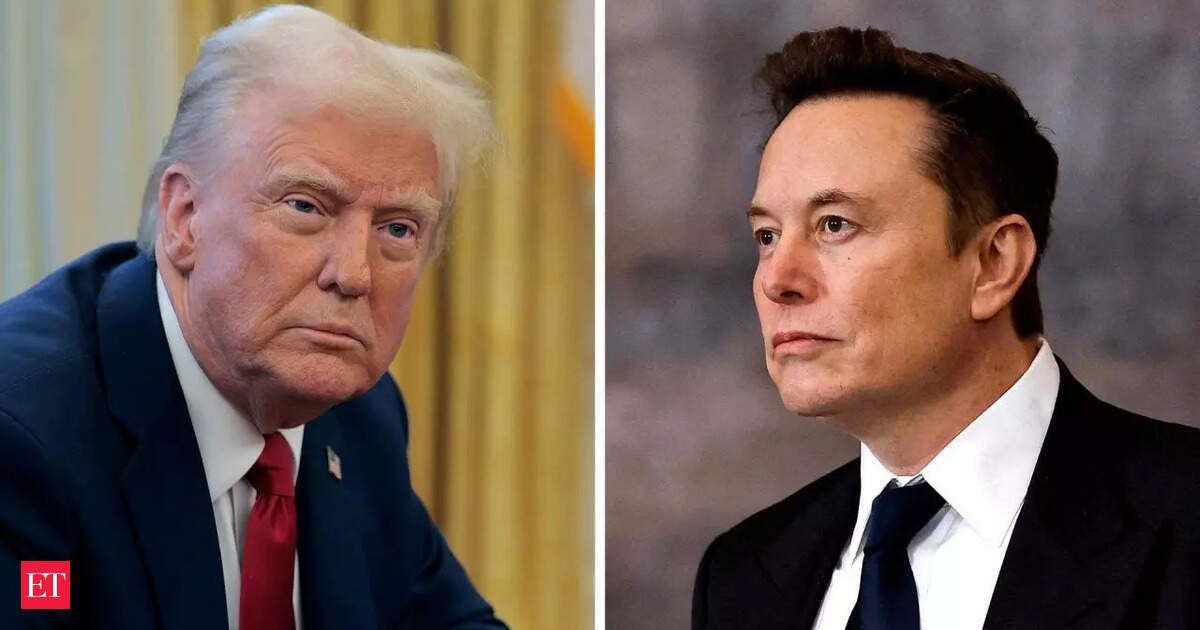In the official memo released this week, OPM Director Scott Kupor stated that federal supervisors already have the “tools and flexibility needed” to evaluate employee performance, rendering Musk’s email summaries redundant and ineffective.
This announcement comes just months after Musk’s high-profile departure from the federal government and a public falling-out with President Trump, who had initially championed the program but later distanced himself as implementation faltered.Why Elon Musk launched the ‘Five Things’ emails In January 2025, President Trump tapped Elon Musk to lead the newly formed Department of Government Efficiency (DOGE)—a bold experiment aimed at reducing bureaucracy, slashing government costs, and streamlining federal operations. Musk, known for his disruptive business style at Tesla and SpaceX, wasted no time in pushing aggressive reforms. One of his first and most visible directives was the weekly “Five Things” email rule.
According to internal sources, Musk believed the practice would enhance workplace discipline, improve visibility into government functions, and cut down on inefficiencies. But what seemed like a simple accountability tool on the surface turned into a logistical headache for many government workers. Government agencies resisted Musk’s rule early on As early as February 2025, signs of internal pushback began to surface. Agencies such as the Department of Defense, NASA, State Department, and Health and Human Services began advising employees to pause or disregard the directive entirely. Internal memos cited concerns about legal risks, cybersecurity vulnerabilities, and conflicting chains of command. Some supervisors complained that the requirement added administrative burdens without delivering meaningful insights. Others argued that the centralized summaries violated existing agency reporting protocols.
In fact, by April, many departments had already unofficially stopped enforcing the rule—even before Musk left his post.
Trump’s shifting tone on Musk and his government efficiency agenda Initially, President Trump praised Musk’s approach, calling it “ingenious” and a “wake-up call for lazy bureaucracy.” But as criticism mounted and implementation faltered, the administration began quietly stepping back.
By June, tensions between the two had boiled over. Trump publicly criticized Musk’s handling of internal reforms and later revoked federal appointments aligned with Musk’s DOGE team. Additionally, federal contracts involving Musk-owned companies like SpaceX, Neuralink, and The Boring Company came under review—further escalating the rift.
The formal termination of the “Five Things” policy now cements that rift, signaling the Trump administration’s broader rejection of Musk-style micromanagement and automation-driven government models.
OPM memo signals return to traditional oversight In the memo issued August 5, the Office of Personnel Management stated that agencies would now “return to existing oversight mechanisms” that include performance reviews, project evaluations, and internal accountability metrics.
“This directive is no longer in effect,” the OPM memo read. “We believe agency leadership is fully equipped with the tools necessary to assess team performance without weekly reporting mandates.”
The Trump administration’s move underscores its confidence in traditional supervisory structures—and a desire to minimize administrative chaos stirred up by Musk’s reforms.
Fallout from Musk’s departure continues Musk’s exit from government in late May followed a wave of resignations and infighting within DOGE. Critics called the agency “chaotic” and “visionless,” while supporters defended Musk’s attempts to modernize Washington’s outdated systems.
Even after his departure, Musk remained vocal on social media, slamming what he called “deep state resistance” to accountability and claiming that Trump “betrayed the vision for real change.”
Since then, he has focused on expanding his ventures in AI and space exploration, while DOGE has been largely sidelined within the administration.
What the end of “Five Things” means for federal workers For the more than 2 million federal employees affected by the weekly email directive, the repeal comes as a major relief. The program had added extra hours of unpaid administrative work and opened employees to new levels of scrutiny, according to union leaders.
The American Federation of Government Employees (AFGE) had been advocating for the policy to be scrapped, citing unfair labor practices and stress-related issues among staff.
With this formal announcement, agencies can now focus on core mission work without the added burden of weekly summary submissions.
Bigger picture: Is this the end of Musk’s influence in Washington? The unraveling of Elon Musk’s influence in Washington politics is now evident. From once being hailed as the face of “Silicon Valley meets Capitol Hill,” Musk now finds himself on the outside looking in. His bold but divisive ideas—like algorithmic personnel tracking and AI-assisted departmental decision-making—failed to gain lasting traction.
What’s clear is that President Trump is reasserting control over his administration’s direction, refocusing on efficiency through conventional oversight, and stepping back from experiments that stir more dysfunction than results.
Trump draws line between innovation and disruption While innovation remains a key part of Trump’s agenda for his second term, the administration has now drawn a clear line between meaningful reform and disruptive overreach. The end of Musk’s “Five Things” email rule symbolizes that shift.
By formally terminating the program, the White House is sending a message: government reform must be functional, clear, and supported by institutional leadership—not just dictated by tech billionaires with grand visions.
As 2025 moves forward, it’s expected that the Trump administration will continue pushing for government modernization, but with greater respect for the realities of federal operations and agency autonomy.
FAQs: Q1: Why did the Trump administration end Elon Musk’s “Five Things” email rule?
Because it caused confusion, added workload, and was no longer seen as useful.
Q2: What was Elon Musk’s government email directive all about?
It required federal workers to send weekly emails listing five things they accomplished.

